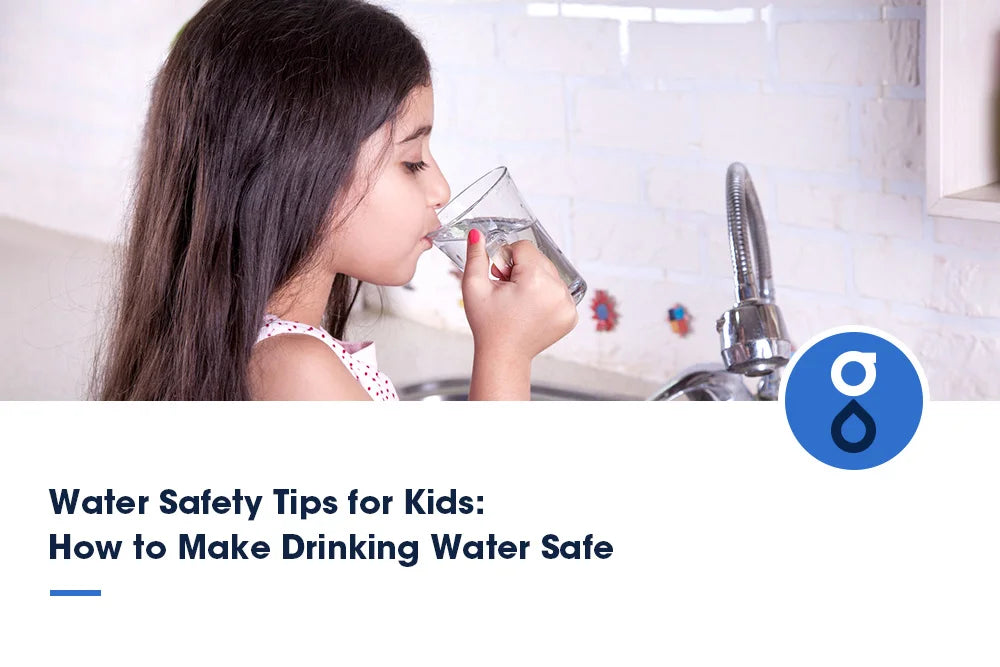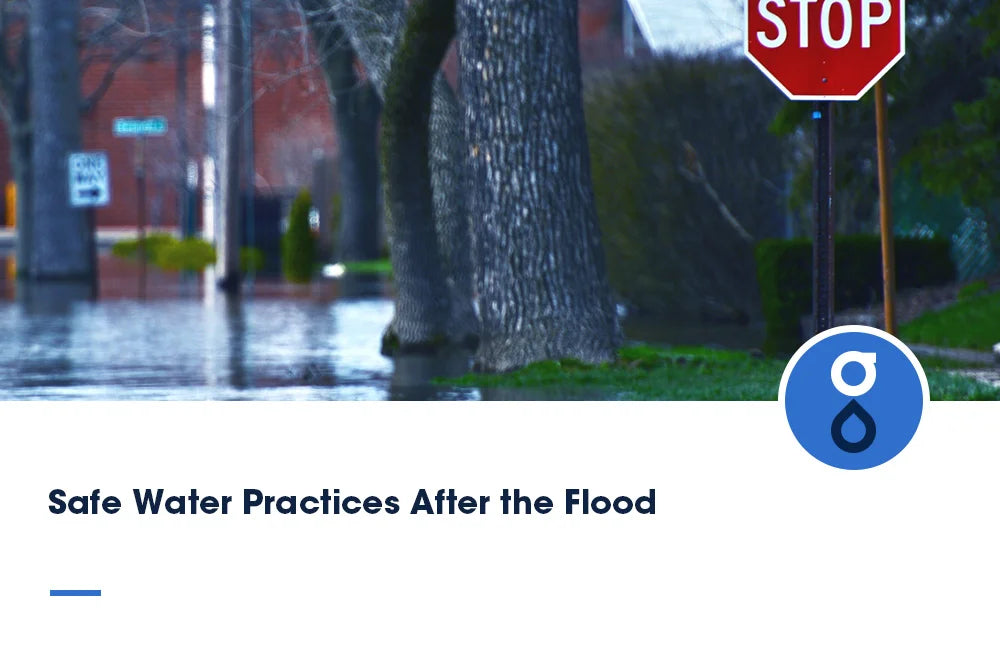Table of Contents:
Why Safe Water Matters for Baby Formula
Types of Water Commonly Used for Baby Formula
What Water to Use for Baby Formula?
How to Safely Prepare Baby Formula?
Additional Tips for Parents
FAQs
Conclusion
New parents ought to know what water to use for baby formula. Water that remains pure and safe enables children to develop strong and healthy. When it lacks harmful chemicals inside, the water your little one drinks supports their wellness, joy, and development.
So stay tuned to find out more about the different kinds of safe water, the best kinds, and other advice for making formula. We’ll also answer some of the most common questions to help parents feel better about feeding their newborns.
Why Safe Water Matters for Baby Formula

Drinking polluted water might make infants ill if they are under a year old. They cannot handle many minerals, substances, or germs since their kidneys and digestive systems are still developing.
When contaminated water is used to make formulae, the following are more likely:
-
Water that has bacteria is highly harmful to the baby.
-
Infants can be hurt by fluoride and nitrate.
-
Your kidneys can get a lot of stress from too much calcium or salt.
-
Gas and constipation are two instances of digestive system issues.
Because of this, health organisations and doctors highlight how important it is to drink clean water that is clean and contains minerals. To lower these dangers and get the most nutrition, think about what water to use for baby formula.
Types of Water Commonly Used for Baby Formula
Parents can utilise various sources of water for the baby’s formula. Each has its own pros and cons:
Tap Water: It remains safe for infants to consume, though it depends on where you reside. There could be microbes, toxic metals, fluoride, or chlorine inside tap supplies.
Bottled Water: It’s easier to locate packaged water, yet that doesn’t mean it’s consistently of equal quality. Numerous contain minerals harmful to infants.
Distilled Water: It lacks harmful minerals, although infants should receive nutrients from meals, not liquids, for an extended period.
Filtered Water: Using proper devices to purify water ensures it remains safe and nourishing.
What Water to Use for Baby Formula?
So, to address your query, what water to use for baby formula? There shouldn’t be any harmful germs, pollutants, or other items in the water that is best for infant formula. Here are two options that are often suggested:
Boiled Tap Water
Boiling water taken from the faucet is a typical and effective method to destroy germs, viruses, and parasites. Here’s how to apply it securely:
Boil fresh tap water for at least one minute.
Before mixing with powdered formula, let it cool to at least 70°C (158°F) to make sure the germs in the formula are likewise eliminated.
Allow it to cool further until it’s the correct temperature for your infant to consume.
Boiling water removes microbes, though not lead, fluoride, or nitrates. When the supply in your area contains many contaminants, boiling faucet water may not remain the ideal choice for your youngster.
Filtered Water
Filtered water is safe for parents. A good filter removes harmful compounds and excessive minerals. This is easier on the baby’s kidneys.
That said, parents should also remember that a poorly maintained system may cause problems rather than solve them. Clogged filters or overdue replacements can reduce water quality, so it’s important to check regularly whether your water filter is truly keeping your family safe or potentially making you sick.
The Glacierfresh Under Sink RO System-Glacierfresh U03 is recommended. Under-sink RO system removes chlorine, lead, and nitrates. In the meantime, fewer minerals reduce newborns’ kidney workload. It will bring you clean, reliable drinking water for the household.
Some parents may wonder whether RO water is safe and healthy to drink since the process removes both contaminants and beneficial minerals. In practice, RO water is considered safe, and when paired with a balanced diet or remineralization, it offers reliable long-term protection for families with infants.
5-Stage Filtration: Effectively removes heavy metals, fluoride, chlorine, pesticides, and microplastics.
Tankless & Compact Design: No storage tank means fresher water with less risk of secondary contamination.
Certified Safe (NSF/ANSI 58 & SGS): Verified by trusted standards to guarantee safe and reliable drinking water.

Parents who want a portable filter might consider the Purela P01 Glass Water Filter Pitcher. It provides clean, filtered water without the need for installation, making it ideal for tiny homes and travel.
Advanced Filtration: Removes chlorine, heavy metals, PFAS, and other contaminants for cleaner, safer water.
Long Filter Life: Membrane lasts up to 1 year, reducing the hassle of frequent changes.
Glass & Food-Safe Design: Made with shatter-resistant glass and food-grade materials for pure, hygienic water.
Because it provides peace of mind, filtered water is often recommended by doctors when asked what water to use for baby formula.
How to Safely Prepare Baby Formula?
You must prepare to keep your infant healthy even while using safe water.
For the best results, do these:
-
Always wash your hands before you touch bottles or formula.
-
You need to clean bottles and nipples often for babies less than three months old.
-
Prepare the water properly. If using tap water, boil and cool as directed.
-
If you are using filtered water, make sure your filtered water works.
-
Follow the package instructions to mix the recipe. Never add water or powder more than needed.
-
After it cools to body temperature (98.6°F or 37°C), give it to the baby.
-
You can use the mix right away or put it in the fridge for 24 hours first. It stays good for two hours at room temperature..
-
Plan and use safe water to keep your youngster safe and successful.
Additional Tips for Parents

Look at the local water reports: Your local water company should provide you with a report on the quality of the water every year.
Do not give your infant bottled water that has a lot of minerals in it: Look for “suitable for infant feeding” on the labels.
Don’t reuse formula that your infant has left over: When your baby is done drinking from the bottle, throw away any extra formula.
Observe how your infant responds: If it pains, consult a physician immediately. If your baby experiences difficulty digesting, ask your paediatrician which type of water or formula to provide them.
Check Filters: If you have a Glacierfresh RO or a similar system, be sure to change the filters when needed to maintain the safety of your water.
FAQs
Can I use bottled water for baby formula?
Yes, but choose ones that say they don’t have a lot of minerals and salt. Don’t drink sparkling or carbonated water. Before you feed your infant, check the fluoride levels.
Is distilled water safe for baby formula?
Yes, however, it shouldn’t be the only water supply for a long time because it doesn’t include the essential trace minerals.
Do I need to boil filtered water?
If your child is less than three months old or was born early, you should boil even filtered water to be sure it is safe for them.
How often should I replace my filter system?
Follow the manufacturer’s directions because most filters, like the ones in the Glacierfresh RO System, need to be changed every 6 to 12 months.
What’s the safest water overall for baby formula?
Filtered water through a reliable RO system is usually the safest and simplest option since it stays clean and contains fewer minerals.
Conclusion
Do you know what water to use for baby formula? It will keep your infant healthy and cheerful. Boiling faucet water is generally safe, though it doesn’t eliminate harmful chemicals. When you own a reliable system, such as the Purela P01 Glass Water Filter Pitcher or the RO System-Glacierfresh U03, you can rest assured that your children are consuming safe, pure, and low-mineral water.
Ensuring your child drinks clean water and mixes their formula correctly could be the finest thing you can do for them. Every little thing matters when it comes to your baby’s well-being. Choosing the appropriate water is one of the most important things you can do.

















